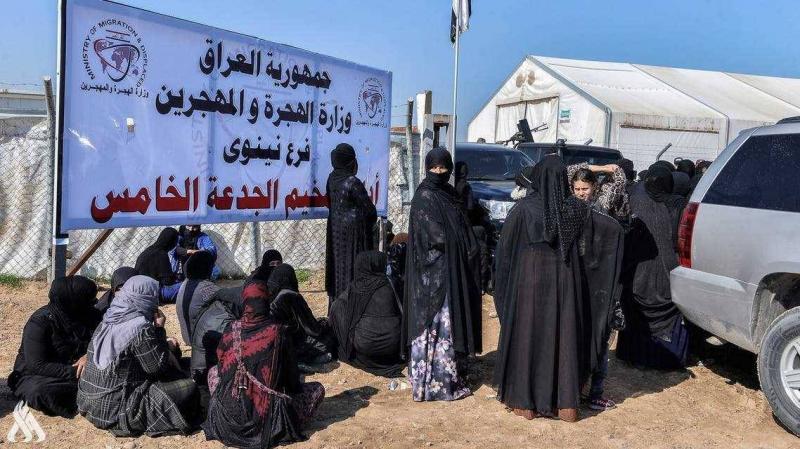The Iraqi Ministry of Migration and Displacement announced on Wednesday that it will close the last displacement camps from the war against ISIS in Mosul during this month, while confirming the difficulties in closing displacement camps in the Kurdistan region. The Minister of Migration and Displacement, Ivan Faik, told the Iraqi News Agency (INA) that the ministry has closed all displacement camps in all governorates, except for those in the Kurdistan region. She pointed out that this month will witness the closure of the Jad'ah camp, which is the last displacement camp in Mosul.
The minister emphasized the challenges of closing the camps in Kurdistan, as they are under the jurisdiction of the regional government. She added that the ministry is working in coordination with responsible parties to close the camps in Duhok, Erbil, and Sulaymaniyah. The ISIS organization took control of large areas of Iraq in 2014, leading Iraqi authorities to open camps for families that lived in cities and areas under jihadist control following their defeat at the end of 2017.
The conflict with ISIS caused the displacement of 6 million people within Iraq, according to a statement from the International Organization for Migration at the beginning of November, which clarified that hundreds of thousands of families returned to their homes after four years. "However, approximately 1.2 million people are still displaced." For years, Iraq has announced its intention to close the camps, but authorities accelerated the process significantly over the past year. Nearly half of the residents of those camps have not returned to their places of origin, according to the International Organization for Migration, despite authorities claiming that this closure campaign ensures the return of the displaced.
The Minister of Migration stated that "there is no real desire from the Kurdistan region to end the displacement issue," calling for "opening a dialogue between the region and the federal government to resolve the displacement issue, especially since most of the cities of the displaced people from the camps in Erbil and Sulaymaniyah have been rehabilitated." She added that "the people of Sinjar have not had their city prepared yet, and they are waiting for the implementation of the Sinjar agreement to return to their cities."
For his part, the ministry's deputy, Karim Al-Nuri, confirmed to INA that "displacement in Iraq will not last forever; it is an exceptional situation, and there is only one camp remaining outside the Kurdistan region and 26 camps within the region." He indicated that "there is coordination with Kurdistan to close the camps." Al-Nuri also noted that "most of the displaced people from Sinjar, Salah al-Din, and Mosul areas are looking for work or homes and are willing to return."




